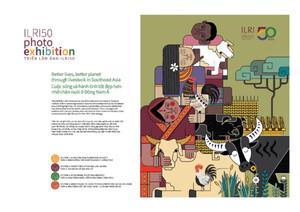
Migration, labor and women’s empowerment: Evidence from an agricultural value chain in Bangladesh
Abstract
As a substantial portion of the rural labor force migrates to urban areas, it is commonly assumed that women could take over traditionally male tasks in agricultural production, with potentially empowering outcomes for women. We study how changes in the supply of labor may influence female labor participation and empowerment outcomes. Using a detailed panel dataset on jute producers in the delta region of Bangladesh, we test whether out-migration of household members and perceived labor shortages are associated with the share of household and hired labor performed by women, and women’s empowerment. When a household experiences reduced household or hired labor supply, we observe a relatively larger use of female household labor, but a reduced share of female hired labor. We also find that reduced labor supply is not associated with significant reductions in gender wage gaps, or enhanced women’s empowerment. These findings suggest that given existing gender norms, male and female labor are not perfect substitutes for one another, and as a result, male outmigration is not associated with improved outcomes for women in cash crop production in the short run. Our results demonstrate a need for better understanding of the role of gender in rural labor markets, particularly in contexts of rapid urbanization.
Citation
Brauw, A. de, Kramer, B. and Murphy, M. 2021. Migration, labor and women’s empowerment: Evidence from an agricultural value chain in Bangladesh. World Development 142: 105445.









